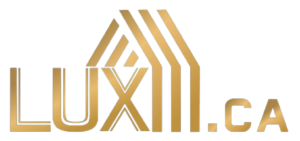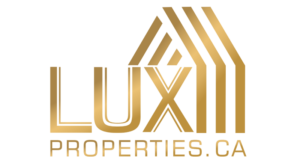Apartment Buying Mortgage Loan in Toronto
Understanding the different types of Apartment Buying Mortgage Loan in Toronto and interest rates can help buyers make informed decisions. Proper planning and budgeting are key to a successful apartment purchase. With the right mortgage loan, buying an apartment in Toronto becomes an achievable goal.
Types of Apartment Buying Mortgage Loan in Toronto
Buying an apartment in Toronto often requires a mortgage loan. There are several mortgage types available. Each has different benefits and risks. Understanding these options helps buyers make informed decisions.
Fixed-Rate Mortgage
A fixed-rate mortgage offers a stable interest rate throughout the loan term. The monthly payments stay the same.This option is ideal for buyers who want predictable payments. Fixed-rate mortgages are available in terms of 1, 3, 5, or even 10 years. They provide security against interest rate changes. However, they often come with slightly higher rates than variable mortgages.
Variable-Rate Mortgage
A variable-rate mortgage has an interest rate that fluctuates with the market. The rate is based on the prime rate set by the bank. If the prime rate goes down, monthly payments may decrease. However, if the prime rate rises, payments may increase. Variable-rate mortgages often have lower initial rates than fixed-rate loans. This option is suitable for buyers willing to take some risk for potential savings.
Adjustable-Rate Mortgage (ARM)
An adjustable-rate mortgage (ARM) starts with a fixed rate for a set period. After this period, the rate adjusts periodically based on the market. For example, a 5/1 ARM has a fixed rate for the first 5 years. Then, the rate adjusts annually. This type of loan is best for buyers who plan to sell or refinance before the adjustment period. It offers lower initial payments but carries the risk of higher future rates.
Open Mortgage
An open mortgage allows early repayment without penalties. Buyers can pay off the loan faster if they have extra funds.This option offers great flexibility. However, it usually comes with higher interest rates.It’s a good choice for those expecting to receive additional income soon. An open mortgage is ideal for buyers who want the freedom to repay quickly.
Closed Mortgage
A closed mortgage has strict repayment terms. Extra payments are limited or may incur penalties. This type offers lower interest rates than open mortgages. It’s suitable for buyers who prefer a stable repayment plan. Most buyers choose closed mortgages due to lower rates.However, flexibility is limited if financial circumstances change.
Convertible Mortgage
A convertible mortgage starts as a variable-rate loan. It can be converted to a fixed-rate mortgage during the term. This option provides flexibility and potential savings. If interest rates rise, buyers can switch to a fixed rate. It’s a good choice for those uncertain about future rates. The convertible feature gives buyers control over their mortgage terms.
Second Mortgage
A second mortgage is an additional loan secured against the property. It can be used to cover down payments or renovations. Second mortgages have higher interest rates than primary loans. They carry more risk for lenders, hence the higher rate. This option is best for buyers needing extra funds beyond the first mortgage. Careful budgeting is essential to manage the additional payments.
Choosing the right mortgage type is crucial when buying an apartment in Toronto. Fixed-rate, variable-rate, and other options offer different benefits and risks. Understanding each mortgage type helps buyers select the best fit for their financial situation. With the right mortgage, buying an apartment can be a smooth process.
Down Payment Requirements For Apartment Buying Mortgage Loan in Toronto
Buying an apartment in Toronto often requires a mortgage loan. One critical aspect is the down payment. The down payment is the initial amount you pay upfront when purchasing the apartment. Understanding the requirements for a down payment is essential before starting the mortgage process.
Minimum Down Payment Amount For Apartment Buying Mortgage Loan in Toronto
The minimum down payment depends on the apartment price. For properties priced up to $500,000, the minimum down payment is 5% of the purchase price. If the apartment costs between $500,000 and $1 million, you need 5% for the first $500,000 and 10% for the remaining amount. For properties priced over $1 million, the minimum down payment is 20%.
Down Payment Sources of Apartment Buying Mortgage Loan in Toronto
Your down payment can come from different sources. The most common source is personal savings. Some buyers use investments or withdraw funds from retirement savings plans. Additionally, financial gifts from family members can also be used. However, you must provide proof of the source of funds, especially for large gifts.
Mortgage Insurance and Down Payment
If your down payment is less than 20%, you are required to purchase mortgage insurance. This insurance protects the lender in case of default. The insurance premium is added to the mortgage amount, increasing your monthly payments. The premium rate depends on your down payment percentage. The lower your down payment, the higher the premium.
Impact on Monthly Payments
A higher down payment means a lower mortgage amount. This reduces your monthly mortgage payments. It also reduces the total interest paid over the loan’s term. A lower down payment results in higher monthly payments and potentially more financial stress. It’s advisable to save for a larger down payment to ease future financial burdens.
Down Payment for First-Time Homebuyers
First-time homebuyers may qualify for special programs. The First-Time Home Buyer Incentive offers shared equity loans, reducing the amount you need to borrow. Additionally, the Home Buyers’ Plan allows you to withdraw up to $35,000 from your RRSP without penalties for your down payment. These programs can help first-time buyers afford the required down payment.
Tips for Saving Down Payment of Apartment Buying Mortgage Loan in Toronto
Start saving early. Create a dedicated savings plan and set a monthly goal. Reduce unnecessary expenses and focus on building your savings. Consider using high-interest savings accounts or investment options to grow your money faster. Regularly review your savings progress and adjust your goals as needed.
The down payment is a significant part of buying an apartment in Toronto. It affects your mortgage loan amount, monthly payments, and insurance requirements. Understanding the down payment requirements helps you plan better and secure a more manageable mortgage loan. Start saving early and explore programs for first-time buyers to make the process easier.
Mortgage Insurance For Apartment Buying Mortgage Loan in Toronto
Buying an apartment in Toronto often requires a mortgage loan. Many lenders require mortgage insurance if the down payment is less than 20%. Mortgage insurance protects the lender, not the buyer. It ensures the lender gets paid if the buyer defaults.
What is Mortgage Insurance?
Mortgage insurance is a policy for high-risk loans. It is mandatory for buyers with a down payment below 20%. The insurance covers the lender if the buyer cannot pay the mortgage. It reduces the lender’s risk and makes loans more accessible. Mortgage insurance helps buyers with small down payments qualify for loans.
Types of Mortgage Insurance
There are two main types of mortgage insurance: CMHC and private insurance. CMHC (Canada Mortgage and Housing Corporation) is the most common. Private insurers like Genworth and Canada Guaranty also offer mortgage insurance. CMHC is a government-backed program, ensuring more security for lenders. Private insurers may offer different coverage and benefits.
Costs of Mortgage Insurance
The cost of mortgage insurance depends on the down payment size. It is calculated as a percentage of the mortgage amount. For a 5% down payment, the premium could be around 4%. For a 10% down payment, the premium is lower, around 3.1%. The premium can be paid upfront or added to the mortgage amount. Adding it to the mortgage increases the total loan cost.
Benefits of Mortgage Insurance
Mortgage insurance helps buyers access larger loans. It allows buyers with smaller savings to enter the housing market. It also offers more loan security to the lender. This reduces the risk of loan defaults and makes lenders more flexible. Overall, it enables more people to buy homes in Toronto’s competitive market.
Is Mortgage Insurance Worth It?
Mortgage insurance adds extra cost to the loan. However, it may be necessary for buyers with limited savings. It provides access to better loan terms and lower interest rates. It helps buyers secure homes without waiting to save 20%. For many, the benefits outweigh the costs.
Mortgage insurance is often required for apartment purchases in Toronto. It helps buyers with small down payments qualify for mortgages. While it adds cost, it also provides access to homeownership. Understanding the types and costs of mortgage insurance helps buyers make informed decisions.
Mortgage Pre-Approval For Apartment Buying Mortgage Loan in Toronto
Getting pre-approved for a mortgage is a crucial step when buying an apartment in Toronto. Pre-approval gives you a clear idea of your budget, helping you make informed decisions.
What Is Mortgage Pre-Approval?
Mortgage pre-approval is a conditional commitment from a lender. It indicates how much you can borrow for purchasing an apartment. The lender reviews your financial information and determines your loan amount. Pre-approval provides you with an estimated interest rate and monthly payment.
Benefits of Mortgage Pre-Approval
Pre-approval has several advantages. It shows sellers that you are a serious buyer, increasing your chances of a successful offer. It also helps you focus on properties within your budget. Additionally, pre-approval locks in your interest rate for up to 120 days. This protects you from potential rate increases during your home search.
Requirements for Pre-Approval
To get pre-approved, you must provide financial documentation. This includes your income statements, tax returns, bank statements, and proof of employment. Lenders also check your credit score. A higher credit score improves your chances of getting pre-approved with better interest rates. Ensure you have a stable income and good financial standing before applying.
How to Apply for Pre-Approval
Start by choosing a reliable lender or mortgage broker. You can apply online or in-person. Fill out the pre-approval application form and submit your financial documents. The lender will assess your information and provide you with a pre-approval letter. This letter includes the maximum loan amount, interest rate, and loan term.
Validity of Mortgage Pre-Approval
A pre-approval letter is typically valid for 90 to 120 days. If you do not find an apartment within this time, you may need to reapply. During this period, avoid making significant financial changes, like taking on new debts, as it can affect your approval status.
Tips for Successful Pre-Approval
Maintain a good credit score by paying your bills on time. Reduce your existing debts and avoid new loans. Save for a larger down payment to increase your loan approval chances. Provide complete and accurate information to the lender.
Mortgage pre-approval is a smart move when buying an apartment in Toronto. It simplifies the buying process and gives you confidence in your budget. Be prepared with the necessary documents and choose a trusted lender to get started.
Interest Rates of Apartment Buying Mortgage Loan in Toronto
Interest rates play a crucial role in apartment mortgage loans. They affect monthly payments and the overall loan cost. Understanding interest rates is key when buying an apartment in Toronto.
Fixed vs. Variable Interest Rates
There are two main types of interest rates: fixed and variable. Fixed rates remain the same throughout the loan term. They offer stability and predictable payments. Variable rates can change based on the market. They may start lower than fixed rates but carry more risk. Variable rates fluctuate with changes in the Bank of Canada’s interest rates.
Current Interest Rate Trends
Interest rates in Toronto have fluctuated recently. High inflation has led to increases in interest rates. Fixed rates are generally higher now due to market uncertainty. Variable rates may be lower but could increase with future hikes. It’s crucial to compare rates from different lenders before deciding.
Factors Affecting Interest Rates
Several factors influence mortgage interest rates in Toronto. The borrower’s credit score is a key factor. A higher credit score usually results in a lower interest rate. The loan amount and down payment size also impact the rate. Lenders may offer lower rates for larger down payments. The loan term, either short or long, can change the interest rate as well.
How to Get the Best Interest Rate
Getting the best interest rate requires preparation. Start by checking and improving your credit score. Aim for a higher down payment if possible. Compare rates from multiple banks and mortgage brokers. Consider both fixed and variable rates based on your risk tolerance. Lock in a good rate when you find it, as rates can change quickly.
Impact of Interest Rates on Your Loan
The interest rate determines your monthly mortgage payment. Even a small change in the rate can affect your budget. A lower rate means paying less interest over the loan’s life. A higher rate increases the total cost of your mortgage. It’s important to choose a rate that fits your financial situation.
Interest rates are a critical part of any apartment mortgage loan. Understanding fixed and variable rates helps you make better choices. Compare offers and prepare financially for the best rate. Securing a good interest rate can save you money in the long run.
Closing Costs of Apartment Buying Mortgage Loan in Toronto
When buying an apartment in Toronto, it’s important to budget for closing costs. These costs are extra expenses beyond your down payment and mortgage loan. They can significantly affect your total home-buying budget.
What Are Closing Costs?
Closing costs are fees and charges paid when finalizing the mortgage loan and apartment purchase. They typically range from 1.5% to 4% of the apartment’s purchase price. Being prepared helps you avoid financial surprises.
Land Transfer Tax for
In Toronto, you must pay the Land Transfer Tax (LTT). This is one of the largest closing costs. The tax amount depends on the apartment’s purchase price. Toronto buyers also pay a municipal LTT, doubling the total tax amount. First-time buyers may receive rebates.
Legal Fees and Disbursements
You need a lawyer to handle the legal aspects of buying an apartment. Legal fees usually range from $1,000 to $2,500. These fees cover document preparation, title searches, and registration. Disbursements are additional costs, such as title insurance and administrative fees.
Home Inspection and Appraisal Fees
A home inspection is optional but recommended. It identifies any issues with the apartment’s condition. Inspections cost around $300 to $500. Lenders may also require a property appraisal, costing $300 to $700. This confirms the apartment’s market value.
Mortgage Insurance Premium
If your down payment is less than 20%, you must pay for mortgage insurance (CMHC insurance). This insurance protects the lender, not the buyer. The premium can be added to your mortgage or paid upfront.
Title Insurance
Title insurance protects against title issues like fraud, errors, or disputes. It is a one-time fee costing around $250 to $400. It provides security and peace of mind for your investment.
Prepaid Property Taxes and Utilities
You may need to reimburse the seller for prepaid property taxes and utilities. This ensures that payments are up-to-date when you take ownership. These costs vary depending on the closing date and property usage.
Adjustment Costs
Adjustment costs are additional payments to cover any outstanding fees the seller has paid in advance. These can include condo fees, maintenance charges, or utility bills. It ensures a fair financial balance between buyer and seller.
Understanding closing costs is essential for budgeting your apartment purchase in Toronto. Planning for these expenses helps you avoid financial stress. Always review the estimated closing costs with your lawyer and lender before finalizing your purchase.
Repayment Period of Apartment Buying Mortgage Loan in Toronto
The repayment period is a crucial aspect of any mortgage loan. It determines how long you will be paying off your apartment mortgage. In Toronto, repayment periods usually range from 15 to 30 years.
Standard Mortgage Terms
Most mortgage loans in Toronto offer standard terms. Common terms include 15, 20, and 30 years. A longer term means lower monthly payments. However, a longer term also increases total interest costs. Shorter terms require higher payments but reduce the total interest paid.
Choosing the Right Repayment Period
Selecting the right repayment period is a big decision. Consider your financial stability and monthly income. If you prefer lower payments, a longer term might be better. If you want to save on interest, choose a shorter term. Discuss your options with a mortgage advisor to find the best fit.
Impact on Monthly Payments
The repayment period directly affects your monthly payment amount. A 30-year loan has lower payments but higher total interest costs. A 15-year loan has higher payments but less interest paid overall. Your monthly budget should guide your decision on the repayment term.
Amortization Period vs. Mortgage Term
The amortization period and mortgage term are different concepts. The amortization period is the total time to repay the loan, usually up to 30 years. The mortgage term is the length of time your interest rate is fixed, often 1 to 5 years. You can renew or renegotiate the mortgage at the end of the term.
Early Repayment Options
Some lenders allow early repayment of your mortgage loan. Making extra payments can reduce your repayment period. You can save on interest by paying off the loan faster. Check your mortgage agreement for prepayment options and penalties.
The repayment period affects your monthly payments and total loan cost. Shorter terms save on interest but have higher monthly payments. Longer terms offer lower payments but increase interest costs. Choose a repayment period that suits your financial situation and goals.


